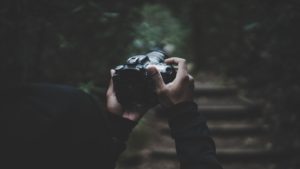If you’ve had your entry-level DSLR camera for a while, you might be wondering if it’s time for the next step. The price difference between entry-level cameras and mid-level DSLRs can be pretty substantial, so it’s worth researching and considering your decision closely before spending the money.
The Upgrade Debate
A lot of people in the photography community seem to have strong opinions about upgrading DSLR camera bodies. You’ll hear a lot of “a better camera won’t make you a better photographer” and “you want to upgrade just to upgrade.”
This isn’t very helpful, and it’s actually a bit condescending. Nearly every serious photographer will upgrade their camera at some point. These statements are rooted in some good ideas that should play into this kind of decision, however. So let’s take a closer look at what they mean.
You Won’t Become A Better Photographer
This statement is mostly true in a few cases. For example:
- You don’t know your DSLR very well
- You rarely (or never) use manual settings
- You haven’t invested in any lenses or equipment

In those cases, it’s best to really assess what you want and what you’re willing to put into photography. Shooting DSLR isn’t easy, and it takes dedication and time to learn. If you have hopes that a more expensive camera will be easier and automatically elevate you as a photographer… well, we hate to break it to you, but it won’t.
Similarly, if you haven’t considered equipment besides what came in the box, you’re missing out on a lot. New lenses make a world of difference in your photography, and there are a ton of options for any camera.
You Want to Upgrade Just to Upgrade
This is very closely aligned to the “better photographer” critique we just mentioned. However, the problem with this one is that you should upgrade if you want to upgrade. And, heck, even if you fit all those bullets above and you want to upgrade your camera anyway — you go for it. Just know that your purchase might not fit your expectations.
What to Look for in an Upgrade
Upgrading your DSLR body can be advantageous if you are feeling limited by your entry-level camera. If you’ve thought it through and have come to the conclusion that you are ready to invest in a new camera body, there are a few different things you’ll want to take into consideration.
Keeping Your Gear
If you’ve invested anything at all into your camera, you’re probably going to want to make sure your replacement can accommodate your gear. This means you’ll need to stay within the brand you started with. Lenses are specific to both brand and type of sensor, so it’ll save you a lot of time and trouble if you double check compatibility before you buy.
Of course, if you are not into the brand you started with, you can obviously move to a new brand. Keep in mind, though, that you’ll have to replace your lenses, batteries, and other components that are brand-specific.
Knowing What You Need
If you’re planning to replace your camera, you’ve probably figured out what you don’t like about your entry-level. However, let’s take a look at what kinds of settings or specs you will want to seek out.
- Autofocus: you might want to have faster or more accurate autofocus
- Low light capabilities: you might want to take better shots in different light situations (psst, this can sometimes be related to lenses)
- Frames per second (FPS): you might need faster frames per second (FPS) to catch sports or weddings
- Customization: you may want to be able to change settings more easily or quickly
- Storage: you may want additional storage or a better ability to use raw
The biggest differences between entry-level DSLRs and mid-level DSLRs are overall design quality (including weather sealing), AF, and viewfinder/controls.
If you are looking for a larger sensor, you typically have to look into semi-pro level cameras.
Take a look at our comprehensive guide to the best DSLR cameras to get an idea of some mid-range cameras and the features they come with.
What to Do with Your Old Body
DO NOT throw it in the trash. You can sell your old DSLR body, but we recommend keeping it for backup. Sometimes entry-level DSLRs can actually do some things more expensive cameras can’t. And, they are great to have around for backup or to teach someone else how to shoot DSLR.

Social Menu